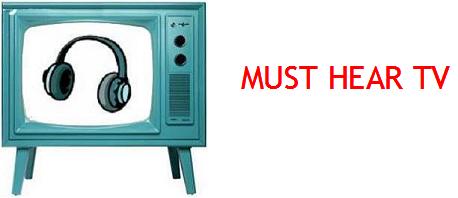 From her first TV job on Laugh-In, to her pioneering work as a writer on The Mary Tyler Moore Show, The Bob Newhart Show, Square Pegs and other sitcoms, Susan Silver has had an amazing career. And as a woman growing up in the formative decades of the conservative '50s and free-swinging '60s, she's had a fascinating life as well. And now it's all in her new book, Hot Pants in Hollywood: Sex, Secrets & Sitcoms.
From her first TV job on Laugh-In, to her pioneering work as a writer on The Mary Tyler Moore Show, The Bob Newhart Show, Square Pegs and other sitcoms, Susan Silver has had an amazing career. And as a woman growing up in the formative decades of the conservative '50s and free-swinging '60s, she's had a fascinating life as well. And now it's all in her new book, Hot Pants in Hollywood: Sex, Secrets & Sitcoms.The title is derived from that of an article TV Guide magazine wrote about her back in the day, which they called "The Writer Wore Hot Pants." It's telling that apparently the concepts of being female and being a writer were considered as incongruous back then as were the title subjects of another '70s vehicle, The Computer Wore Tennis Shoes.
After devouring Silver's memoir, I asked her more specifically about her days as a woman "making it on her own," to quote MTM's theme, in Hollywood.
Must-Hear TV: How did your traditional Midwestern family background prepare you -- or not prepare you -- for life in Hollywood? How did it prepare you to write for a character such as Mary Richards?
Susan Silver: Coming from Milwaukee, which
is often confused with Minneapolis, I was perfect for The Mary Tyler Moore Show -- though
frankly I'm much more Rhoda than Mary. I have too much spunk! Seriously I think the difference in values is huge, and I'm glad I had the basics
from the Midwest. Hollywood is a place unto itself. I used to say I had to
leave because my tush fell and they measure it when you get off the plane. It's very superficial still, sorry to say. So I
arrived like Little Annie Fanny, wide-eyed. But it was easier than New York, which
would have chewed me up and spit me out. For that, I had to wait until after some
success.
MHTV: At the time of the MTM Show, there were few or no female comedy writers working on sitcoms. What do you think made the MTM producers decide they needed a female perspective?
SS: The great timing of the
show, with the beginning of feminism, was an impetus to get a woman's POV. Rarely
heard before, real women's lives were what the show wanted and they thought we
were all geniuses. The truth was, all women have the same stories to share and
they had not been heard before. By the end of the show I think 25 women had been
hired as writers.
MHTV: What were some of the most common pitfalls a comedy writer would face in decades past in her career? What did you learn to do or not to do from your own career?
SS: I feel as though I started on top, and so my requirement and what I had learned was to pick only high quality
shows. Most of us don't have that luxury. On MTM [company] shows they worked with
you all day, but on other shows they would give you a 20-minute story meeting
and you had no real idea what they wanted. Nor did they, so there was more
rewriting.
MHTV: Hollywood is a ridiculously ageist town. Would you still want to create your own show? And if so, what would it be, and what message would you/it be trying to say?
SS: Ageism is the new discrimination. The Writers
Guild had a longtime lawsuit against studios, which we won, and it was proven
that there was so much of it... and it still exists. I doubt that writers over
50 have a chance. The sad thing is that great shows like The Golden Girls, as
you know, have audiences, if only they would write them and put them on.
I don't think I'd want to be active in the biz now unless I had total control, and wouldn't write a show where Boomers were portrayed so unrealistically or as
sex-starved cliches. But what the hell -- if someone wants me to do
a show, call me. George Clooney can call me, too. I know he is a new
father but still...




thanks to my "best student" :)))
ReplyDelete